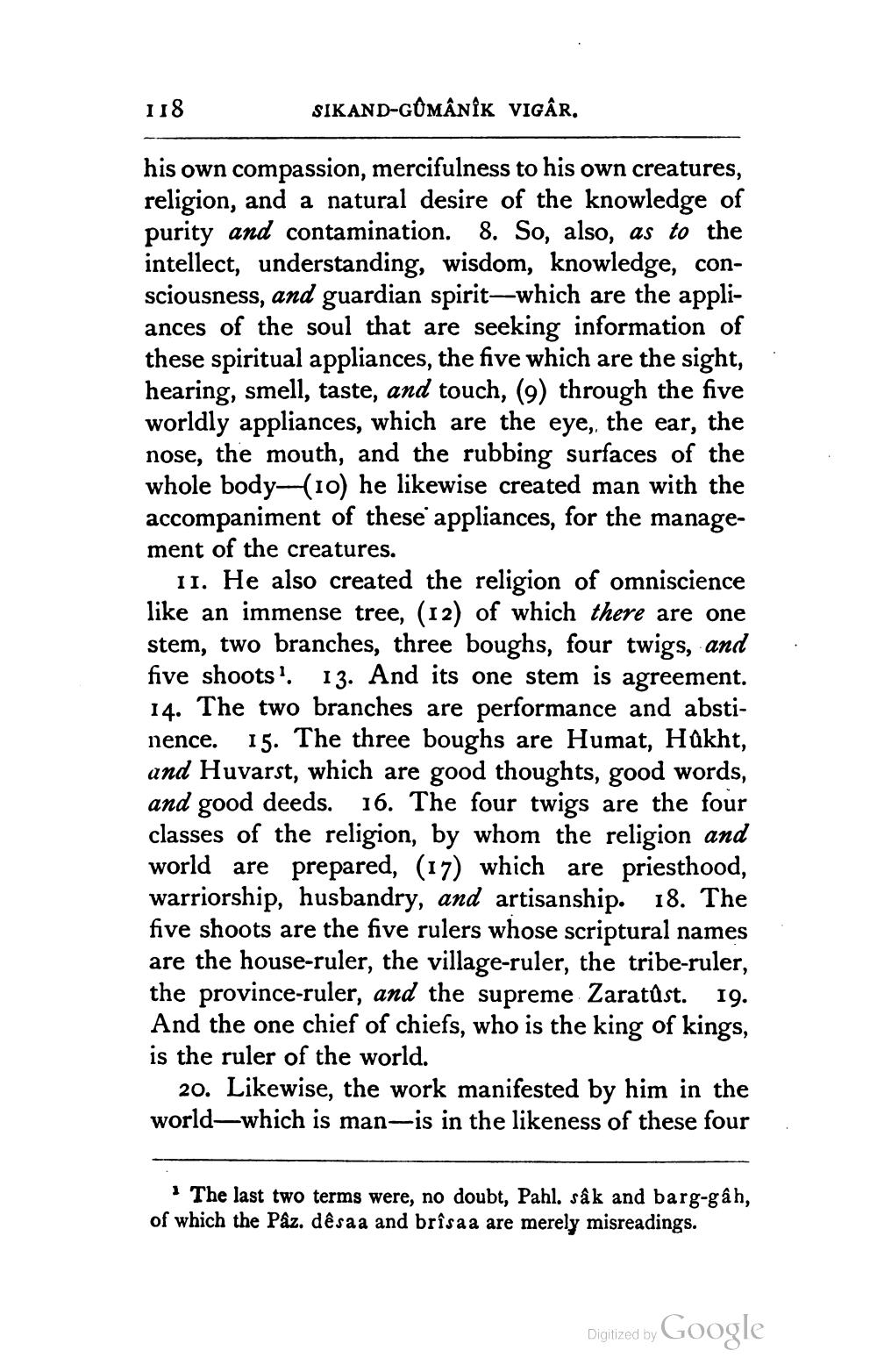________________
118
SIKAND-GOMÂNIK VIGÂR.
his own compassion, mercifulness to his own creatures, religion, and a natural desire of the knowledge of purity and contamination. 8. So, also, as to the intellect, understanding, wisdom, knowledge, consciousness, and guardian spirit—which are the appliances of the soul that are seeking information of these spiritual appliances, the five which are the sight, hearing, smell, taste, and touch, (9) through the five worldly appliances, which are the eye,, the ear, the nose, the mouth, and the rubbing surfaces of the whole body-(10) he likewise created man with the accompaniment of these appliances, for the management of the creatures.
11. He also created the religion of omniscience like an immense tree, (12) of which there are one stem, two branches, three boughs, four twigs, and five shoots?. 13. And its one stem is agreement. 14. The two branches are performance and abstinence. 15. The three boughs are Humat, Hakht, and Huvarst, which are good thoughts, good words, and good deeds. 16. The four twigs are the four classes of the religion, by whom the religion and world are prepared, (17) which are priesthood, warriorship, husbandry, and artisanship. 18. The five shoots are the five rulers whose scriptural names are the house-ruler, the village-ruler, the tribe-ruler, the province-ruler, and the supreme Zaratûst. 19. And the one chief of chiefs, who is the king of kings, is the ruler of the world.
20. Likewise, the work manifested by him in the world—which is man-is in the likeness of these four
:
.
The last two terms were, no doubt, Pahl, sâk and barg-gah, of which the Paz. dêsaa and brîsaa are merely misreadings.
Digitized by Google




